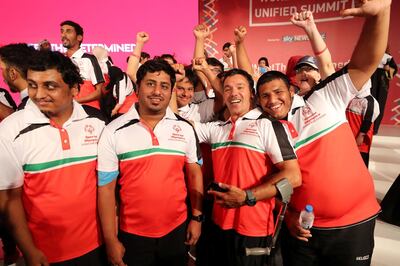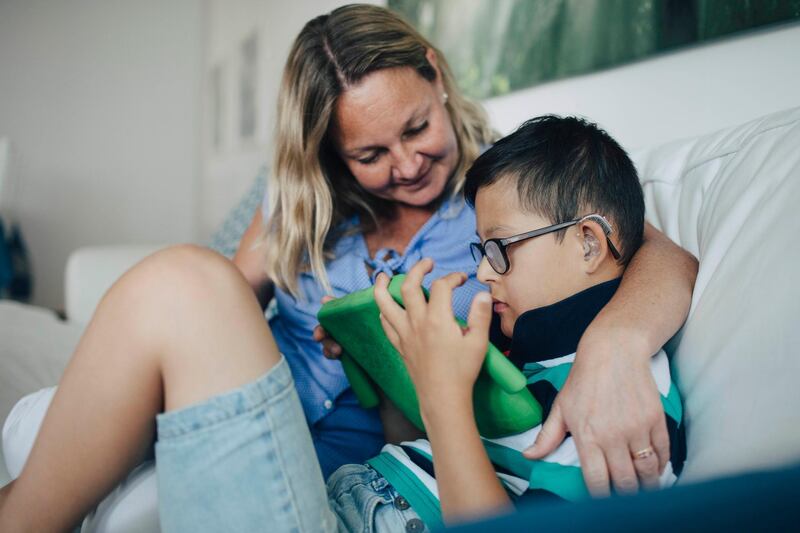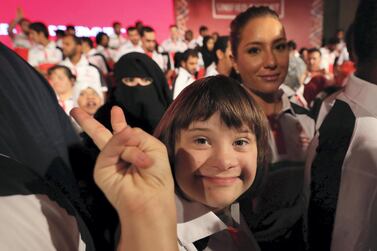Spoiling or mollycoddling those with intellectual disabilities in an overprotective way can hamper their independence, according to a new study.
A survey designed to assess public opinion in the Mena region found many were overindulging people of determination and advised against it.
A preview of the research was released on Tuesday to mark the 100-day countdown to the Special Olympics World Games Abu Dhabi 2019.
The full study, which covered eight countries including the UAE, Saudi Arabia, Kuwait, Bahrain and Oman, will be released to coincide with the start of the event in March.
“The overprotective attitude of mothers unwilling to allow children to go through some experiences on their own holds back people with intellectual disabilities,” the report summary said.
“Families were prohibiting growth of their children with intellectual disabilities because they put them in a protective bubble.”
The study by market research firm Nielsen conducted interviews with 42 families of people with varying disabilities.
It aimed to help better understand the challenges individuals faced and the goals they sought to achieve in life.
Grandparents of those with disabilities were often found to share a particularly close bond and were frequently seen as a comforting presence.
Fathers on the other hand, were usually only available on weekends and were less involved than the rest of the family, the survey said.
“This over protection is backfiring and is not encouraging the growth of the kids,” said Tala Al Ramahi, chief strategy officer of the Special Olympics.
“By witnessing the Games, we hope they [families] will understand that if they give their children the platform to develop they can flourish and achieve so much.
“We have found there is a lot that can be done to increase awareness among families so they can provide the right environment to encourage growth.”

Another crucial finding of the research was that while most people believed intellectually disabled athletes could play sport, they considered it easier for them to play alongside other people of determination.
The survey showed 90 per cent of people in the UAE and 84 per cent in the Mena region thought those with disabilities should compete with similarly-abled athletes.
“This is where the Special Olympics can play a critical role in changing attitudes,” Ms Al Ramahi said.
“Most of our team sports including at the World Games are unified teams [they include some players with no disabilities] and athletes with intellectual disabilities flourish with inclusion.
“This also promotes a larger agenda of a social change because when athletes [who are not disabled] play with other athletes who are, their perceptions change and they realise that these are athletes like everyone else."






